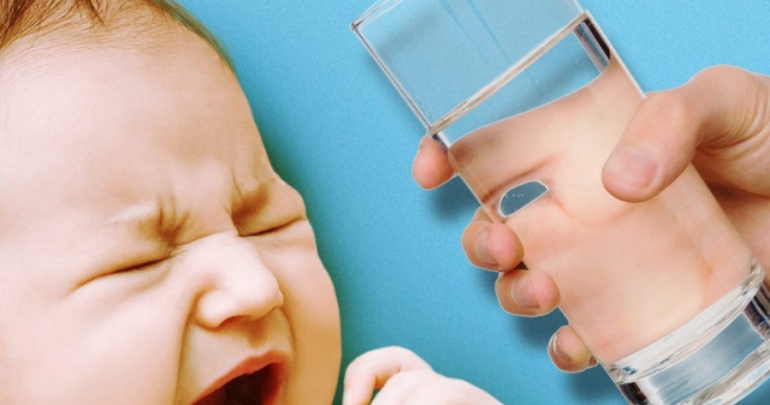While adults need a constant reminder to drink more and stay hydrated, for newborn babies this is a different story. Their bodies are not developed enough to consume even a few ounces of water, which in extreme cases could be deadly.
According to Science Insider, the average healthy adult is 55-60% water. The average baby, on the other hand, is about 75% water. And this difference explains why babies should not drink water before they are at least 6 months old.
All kidneys have a limit on how much water they can handle. When this limit is exceeded and excess water returns to your bloodstream, this will dilute the salt or sodium in your blood.
Once your blood pressure drops below 0,4 ounces of sodium per gallon, you run the risk of a condition called hyponatremia. It occurs when your cells try to return sodium levels to normal by absorbing excess water and swell like a water balloon in the process, causing complications such as confusion, vomiting and muscle spasms.
Hyponatremia is common in marathon runners who drink too much, too fast during a race without providing enough sodium to balance their blood. And if you continue to drink, this excess water will eventually reach the cells of your brain. At this point, you have a dangerous case of water poisoning, which affects about 200.000 Americans each year.
It occurs when your brain cells swell, which increases the pressure inside your skull. This can lead to seizures, brain damage and - in severe cases - death.
"But do not worry, dying from water addiction is extremely difficult for an adult. "An adult would have to drink 2,5-5 gallons every few hours to get to this point."
But for newborns, it's a different story. Their kidneys are about half the size of an adult. So they can not hold much water to get started and only need a few ounces to cause problems.
In addition, their kidneys are not developed enough to properly filter water. Thus, any water that enters their body ends up in the circulatory system, where it dilutes their blood and increases the water content by 7 to 8%.
"But it is not just the consumption of H2O directly that is a threat. In fact, most cases of water poisoning in infants do not involve a single glass of water. A common mistake is when people dilute the baby formula too much, by mistake, or when parents dip their babies up and down in a pool, and in the process, the baby swallows too much water.
"It is important if your baby shows signs of water poisoning that you take them immediately to the hospital, where a doctor will probably provide some form of fluid, such as an intravenous saline solution, to raise the baby's sodium levels to normal," the report said.
